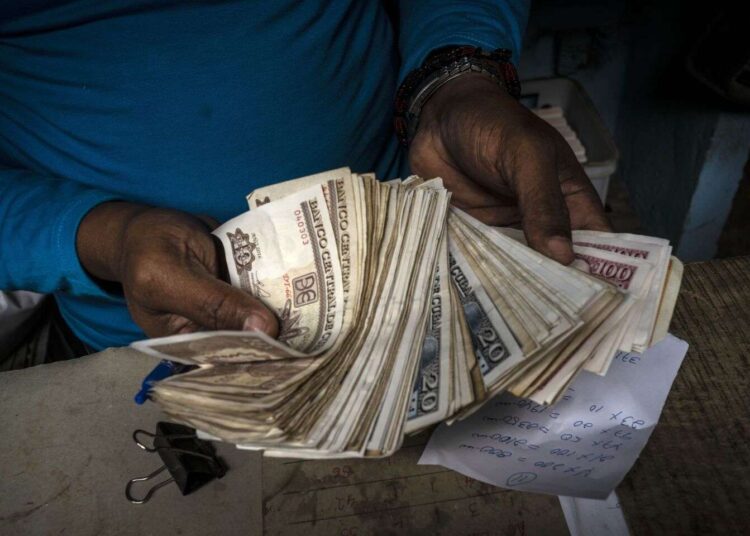The purchasing power of Cuba’s almost three million state employees fell 21 percentage points in 2023 compared to the previous year, according to official figures published this Tuesday.
According to the annual salary report of the National Office of Statistics and Information (ONEI), the average state salary in 2023 was 4,648 Cuban pesos (38.7 dollars, at the official exchange rate), which represents an annual increase of a little more than 10%.
In comparison, the year-on-year inflation of the formal market stood at 31.34% at the end of 2023, according to data from this same state agency previously released.
According to independent experts, this value does not include the increase in prices in the majority — and best-supplied — informal market on the island, where inflation could reach three digits.
Cuban government plans to “resize” exchange market in February
As a reference, in private stores in Havana, the price of a carton of 30 eggs costs up to 3,500 pesos ($29.16, at the official exchange rate), depending on availability.
The mining and quarrying sector was the one that registered the highest average income, with a monthly salary of 7,717 (64 dollars) while the lowest was that of commerce and repair of personal effects, with 3,760 pesos (31.33 dollars).
In the case of health and education workers, the average salary in 2023 was only 4,222 pesos (35.18 dollars) and 3,932 pesos (32.76 dollars), respectively.
The ONEI report also reported on salary differences depending on the province.
Havana, for example, recorded the highest monthly income, with an average of 5,354 pesos (44.6 dollars), very distant from the eastern provinces of Granma (3,931 pesos, 32.75 dollars), Santiago de Cuba (3,961 pesos, $33) and Las Tunas (4,031, $33.59).
The year-on-year inflation in Cuba’s formal market stood at 33.17% in March, somewhat above those in February (32.08%) and January (31.69%).
The largest year-on-year increase by category was that of transportation (47.95%), an increase that coincided with the entry into force of the increase in fuel prices by 400%, the spearhead of an adjustment plan by the Cuban government.
Cuban government to raise fuel prices and warns it will subsidize people and not products
The pandemic, the tightening of U.S. sanctions and errors in national economic and monetary policy have aggravated the chronic problems of the Cuban economy in the last four years.
The situation is characterized by a shortage of basic products, partial dollarization of the economy and a sharp price increase.










